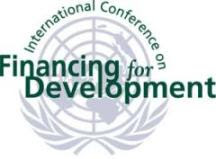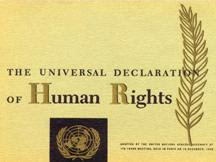 As a scholar and teacher of international relations, J. Ann Ticner have frequently asked herself the following questions: Why are there so few women in her discipline? If she teach the field as it is conventionally defined, why are there so few readings by women to assign to her students? Why is the subject matter of her discipline so distant from women's lived experiences? Why have women been conspicuous only by their absence in the worlds of diplomacy and military and foreign policy-making?
As a scholar and teacher of international relations, J. Ann Ticner have frequently asked herself the following questions: Why are there so few women in her discipline? If she teach the field as it is conventionally defined, why are there so few readings by women to assign to her students? Why is the subject matter of her discipline so distant from women's lived experiences? Why have women been conspicuous only by their absence in the worlds of diplomacy and military and foreign policy-making?
Ticner began to think about writing this book as an attempt to answer these questions. Having spent her childhood in London during World War II and her adolescence in New York as part of a United Nations' family, international affairs were an important part of her early life. But, as one of only three female graduate students in her year in Yale University's International Relations Program in the early 1960s, Ticner began to notice that the academic discipline that she had chosen, in part because of these formative experiences, was not one that attracted many women.
Admittedly, when she returned to graduate studies in the 1970s, the number of women entering the field had grown: while her felt less isolated, she observed that women scholars and teachers of international relations were clustered in areas such as international political economy, development studies, and international political theory. She still wondered why so few women chose national and international security studies, the privileged core of the field.
Her own research has been in areas such as Third World development, North-South relations, and peace studies-- areas that were far from the mainstream of international politics in the early 1980s when she began her academic career. Like many women in international relations, she did not choose to specialize in security-linked war and peace studies, usually associated with great power relations and power politics, areas central to the subject matter of the classical discipline.
As a teacher of international relations, however, she have, of necessity, familiarized herself with what some in her field would call the "important" issues of war and peace, generally defined as national security studies. But, as only one of three women out of a total of about sixty students who participated in a course on nuclear strategy at M.I.T. in the early 1980s, her contention that this is an area of international relations not heavily populated by women was strongly reinforced. Trying to familiarize herself with the arcane and esoteric language of nuclear strategy, she remembered with some sympathy how, as an undergraduate history major, she had avoided details of war-fighting strategies and weapons development.
About the Author: J. Ann Tickner is professor of international relations at the University of Southern California.
Do you want to get this book free? just let me know here!
>> Read More: Gender in International Relations...
 This blog awarded 3 by Google Page Rank (PR). Great!, it is truly great gift from Google for me at the end of this year. I saw my browser (Firefox) PageRank indicator bar this morning while I was opening this blog and then 3 active PR welcome me.
This blog awarded 3 by Google Page Rank (PR). Great!, it is truly great gift from Google for me at the end of this year. I saw my browser (Firefox) PageRank indicator bar this morning while I was opening this blog and then 3 active PR welcome me.


























